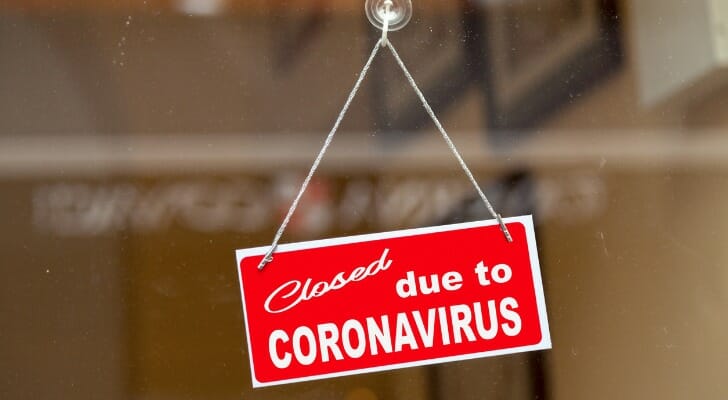As the coronavirus pandemic continues to hamper the U.S. economy, residents of individual states, like Pennsylvania, are searching for relief programs at a local level. The Keystone State now has more than 66,900 confirmed cases, according to the Pennsylvania Department of Health (DOH). And the Department of Labor shows Pennsylvania has more than 1.7 million unemployment compensation claims. And though life-sustaining businesses continue to operate, on March 19, 2020, Governor Tom Wolf ordered all non-life-sustaining Pennsylvania businesses to close down. Despite the many economic challenges they are facing, both individuals and businesses can rebuild their finances through federal and state coronavirus crisis government help. Financial advisors can also offer guidance for navigating these economically challenging times. If you or your small business has been impacted by COVID-19, we’ll show you how you can seek help in this guide.
Pennsylvania Coronavirus Relief for Individuals
Like all other U.S. states, Pennsylvania has to abide by the federal provisions imposed under the Coronavirus Aid, Economic and Security (CARES) Act. The state normally offers 26 weeks of employment benefits, but it now provides 39 weeks total, due to the changes in federal law. However, to aid individuals who’ve filed for unemployment, the state has made some changes to its usual unemployment compensation eligibility requirements. For instance, Pennsylvanians no longer need to wait one week to apply for and receive benefits. Individuals also won’t have to prove that they’re searching for another job.
Though Pennsylvania doesn’t provide many state-based coronavirus forms of relief for individuals, several food banks and pantries offer food resources. The ElderShare & Commodity Supplemental Food Program (CSFP), for example, provides low-income seniors with nutritious food boxes on a monthly basis. You can see more information on available Pennsylvania COVID-19 resources here.
Pennsylvania Coronavirus Relief for Small Businesses

Pennsylvania Industrial Development Authority (PIDA) Loans
Though not strictly for coronavirus-impacted small businesses, PIDA says it also offers low-interest loans and lines of credit for eligible employers that commit to creating and retaining full-time jobs for the development of multi-tenant facilities and industrial parks.
Additional loan uses include land and building acquisitions, construction and renovation costs, machinery and equipment purchases and working capital and accounts receivable lines of credit. As for loan terms, businesses can borrow for up to 10 years for machinery and equipment purchases. For building acquisitions and construction projects, the term maximum is 10 years. You can learn more about these loans here.
COVID-19 Working Capital Access Program
Though now closed, the COVID-19 Working Capital Access Program (CWCA) offered loans up to $100,000 for Pennsylvania small businesses with 100 employees or fewer. Created under the Pennsylvania Industrial Development Authority’s Small Business First Fund, the program strictly provided funding to small businesses impacted by COVID-19. To make the program available for Pennsylvania for-profit businesses, the Commonwealth Financing Authority (CFA) transferred $40 million to the Small Business First Fund, and PIDA contributed $60 million.
CWCA mandated that loans be used for working capital, excluding fixed assets, production machinery and equipment, according to the Pennsylvania Department of Community and Economic Development (DCED). The program came with a 0% interest rate, but agricultural producers will have a 2% fixed interest rate for loan’s full term.
Federal Coronavirus Relief for Individuals
The $2 trillion coronavirus stimulus package, known as the CARES Act, includes several major relief programs for individuals impacted by the coronavirus. Among these are enhanced unemployment benefits, paid coronavirus sick leave, a tax deadline extension, coronavirus student relief programs and coronavirus relief for rent and mortgage payments. While most of its relief programs are need-based, the CARES Act also provides stimulus checks to Americans with certain adjusted gross incomes (AGIs) — even if they haven’t been directly impacted by the virus. The stimulus checks are for individuals, married couples and heads of household. Individuals and heads of household earn up to $1,200, but married couples can earn $2,400 and an additional $500 per dependent. But each check amount decreases by $5 for every $100 above the income limit. So, for individuals, the AGI cutoff is $99,000. For couples, it’s $198,000, and for heads of household, the cutoff is $136,500, respectively
If you lose your job due to coronavirus-related reasons, you can also take advantage of the CARES Act’s enhanced unemployment benefits. As a response to COVID-19, the government introduced three key unemployment relief programs: Pandemic Unemployment Compensation (PUC), Pandemic Unemployment Assistance (PUA) and Pandemic Emergency Unemployment Compensation (PEUC). A notable perk within the unemployment benefits expansion is that it allows you to claim an additional 13 weeks of unemployment benefits (pushing the total to 39 for most states).
Federal Coronavirus Relief for Small Businesses
Coronavirus-impacted small businesses also qualify for federal support. The CARES Act originally allocated $349 billion to small businesses through the Paycheck Protection Program (PPP), but the program recently ran out of funding. The program offered loans up to $10 million or 2.5 times an employer’s average monthly payroll costs (excluding salaries of $100,000 or more). However, Congress approved an additional $310 billion in funding for the program.
Small businesses can also take advantage of the SBA Debt relief program, the SBA 7(a) loan program, the Express Loan Program, the express bridge loan pilot program and Economic Injury Disaster Loans (EIDLs).
The Bottom Line

Though the CARES Act offers national relief for those affected by coronavirus, Pennsylvania also offers coronavirus relief for businesses and individuals. As the state’s unemployment statistics surge, officials have adjusted some of its unemployment compensation requirements. And small businesses can access low-interest loans through PIDA. But you’ll want to do your research to see whether you qualify. As the economy braces for a looming recession, it’s wise to stay informed so you won’t be financially blindsided during the COVID-19 pandemic.
Tips for Managing your Finances During the Coronavirus Crisis
- Federal and state governments aren’t the only ones offering individuals and small businesses relief. Several companies are helping coronavirus-impacted people, and banks are also helping customers affected by coronavirus. For instance, Google pledged $800 million to coronavirus relief, and Facebook recently launched a small business grants program.
- If you’d like professional help with navigating the coronavirus crisis, a financial advisor could be right for you. Our free tool connects you with up to three advisors in your area.
- You may qualify to receive coronavirus stimulus checks. If you’re not sure, our coronavirus stimulus check calculator can help.
Photo credit: ©iStock.com/Pgiam, ©iStock.com/Gwengoat, ©iStock.com/pixelfit
